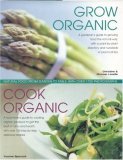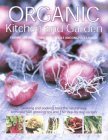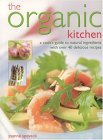Cilantro and coriander
Promotes digestion, eases colic, relieves arthritis, prevents infection in minor wounds
Cilantro and coriander are twin herbs that come from the same plant. Cilantro, sometimes called Chinese parsley, refers to the leaves. Coriander is the name for the seeds. Historically, the seeds were more popular, but today both the leaves and seeds are widely used. And both have the same medicinal benefits in helping to soothe digestion and control infection.
Coriander tastes like a warm combination of sage and citrus. Cilantro has a similar but milder taste. The seeds apparently stimulate the imagination as well as the taste buds, because around the eighth century, the mythical Arabian princess Scheherazade described coriander as an aphrodisiac in the stories later collected as The Thousand and One Arabian Nights. (Science is so far silent concerning this use for the seeds.) Coriander was used as a digestive aid for thousands of years from China to Europe. In Egypt, the seeds were found in pharaohs' tombs, presumably to prevent indigestion in the afterlife. While the Hebrews were slaves in Egypt, they adopted coriander. According to the Bible, God fed them manna, which the holy book says was "like coriander." If manna did what coriander does, the Hebrews did not suffer indigestion. "Cilantro/coriander helps settle the stomach," says James A. Duke, Ph.D., a botanist retired from the U.S. Department of Agriculture and author of The CRC Handbook of Medicinal Herbs.
The ancient Romans used both the leaves and the seeds to preserve meats. And modern Russian researchers have discovered why: The herb is an antioxidant. Antioxidants are chemicals that, among other things, help prevent animal fats from turning rancid. Cilantro and coriander also contain substances that kill meat-spoiling bacteria, fungi and insect larvae. The same microorganisms can cause infections in wounds. Finally, some studies suggest that cilantro/coriander has anti-inflammatory action, suggesting it might help relieve arthritis.
Putting the herb to work
"I've never heard of any problems with cilantro or coriander," says Daniel B. Mowrey, Ph.D., director of the American Phytotherapy Research Laboratory in Salt Lake City, Utah, and author of The Scientific Validation of Herbal Medicine. "But some people just don't like it. Quite often when people don't like curry, what they object to is the coriander in it. But curry spices are very healthful."
If you'd rather sip a tea than eat curry, use one teaspoon of dried leaves or crushed seeds (or 1/2 teaspoon of powdered seeds) per cup of boiling water. Steep for five minutes. Drink up to three cups a day before or after meals. Weak coriander tea may be given to children under two for colic. You can also sprinkle the powdered seeds on minor cuts and scrapes. Before you do, thoroughly wash the wound with soap and water.
Like this page? Please link to us and let the world know!









